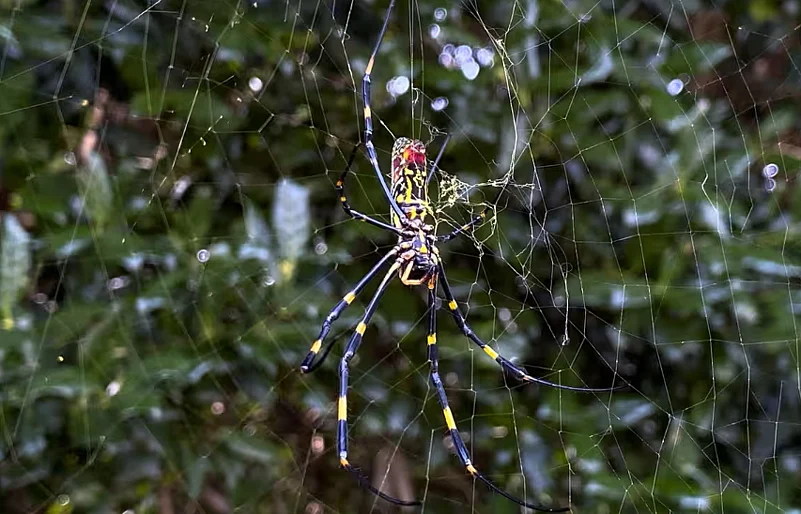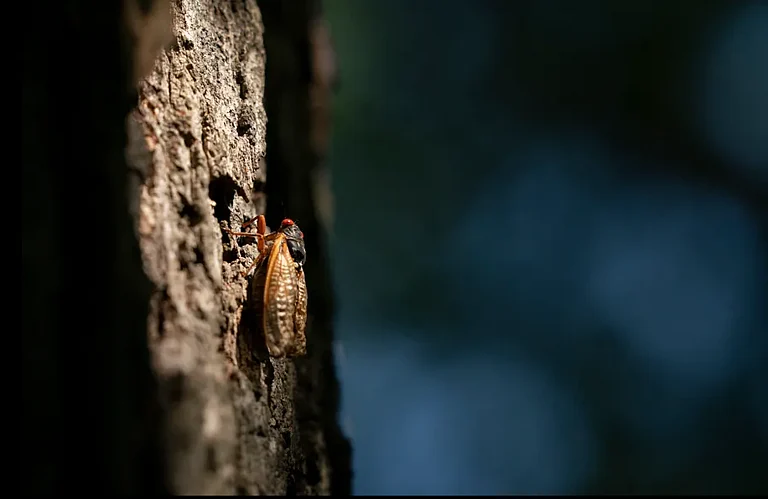An invasive species of spider known as the Joro spider, originally from East Asia, has been spreading across the southern United States and has recently been observed in Maryland. Although this spider is harmless, its large size can be intimidating. It is anticipated that the Joro spider will begin appearing in New Jersey and New York as early as this summer.
The spider possesses a body roughly 4 inches in length, with legs extending 6 to 8 inches, making it as large as a human hand. Female spiders are notably vibrant, featuring yellow bodies accented with gray or dark blue stripes, a red underbelly, and legs that are dark blue with yellow bands. In contrast, the males are brown in color.
Louis Sorkin, a retired arachnologist from the American Museum of Natural History who now consults on arachnology and entomology, commented, “I'm sure it'll bother people just because a lot of people don't like spiders. They really don't pose a big threat. Of course they have venom, but it's not a dangerous venom.”
The Joro spider typically bites only if provoked, and its venom is harmless to both humans and pets. Moreover, the Joro spider can be advantageous as it consumes pests such as mosquitoes, yellowjackets, stink bugs, and spotted lanternflies, trapping them in its distinctive golden yellow webs. Additionally, birds and mammals also prey on Joro spiders, making them an integral part of the local ecosystem.
The Joro spider utilizes wind currents for travel, with a single spider capable of covering distances up to 100 miles.
“The spiderlings do balloon, which is like a parachuting style of producing silk that goes out into a long strand, which is then picked up by the wind,” explained Sorkin. If the prevailing winds are heading north during the period when spiderlings are optimally sized for wind travel, it is likely they will spread from the South to the New York metropolitan area.
However, the spider's huge size and quick spread are provoking significant reactions. One headline even proclaimed, “Beware – Wicked Venomous Flying Spiders Heading To Missouri.”
“It's a bigger spider than we're used to, but it has pretty colors,” Sorkin stated.
Despite concerns, Sorkin does not anticipate the Joro spider arriving in such vast numbers as to cause issues.





























